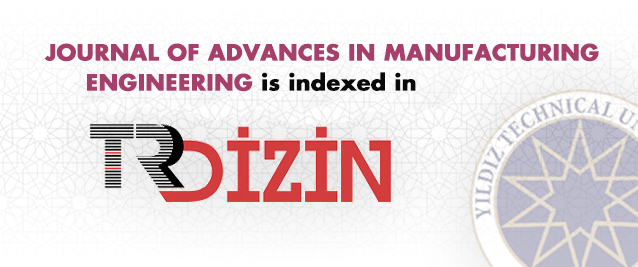2Department of Mechanical Engineering, İstanbul Medeniyet University, Faculty of Engineering and Natural Sciences, İstanbul, Türkiye
3Department of Metallurgy and Materials Engineering, Sakarya University, Faculty of Engineering, Sakarya, Türkiye
4Department of Mechanical Engineering, Kocaeli University, Faculty of Engineering, Kocaeli, Türkiye;Department of Machine and Metal Technologies, Ford Otosan İhsaniye Vocational School of Automotive, Kocaeli University, Kocaeli, Türkiye
Abstract
The process of machining micro surface patterns on a workpiece to improve various per-formance aspects of engineering materials, including wear resistance, corrosion resistance, and biocompatibility, has been a hot topic of research in recent years. Due to the restricted machinability of titanium and its alloys, it is very challenging to process micro surface pat-terns with exact surface geometries using traditional machining methods. Consequently, non-traditional processing techniques, such as laser, electro-erosion, and chemical etching, may overcome these obstacles. In the present study, electrical discharge machining (EDM) is used to form micro surface patterns on Cp-Ti alloy samples. First, graphite electrodes with several channels were manufactured, and then square-shaped surface patterns were processed onto Cp-Ti samples using EDM. To evaluate the machining performance of the process and surface features of the obtained micro surface patterns, the surface morphol-ogy and topography of the processed samples were investigated by scanning electron mi-croscopy (SEM) and three-dimensional (3D) optical profilometry, respectively. The average widths of the square-shaped surface patterns along the X and Y axes were 663.7±8 µm and 609.5±4 µm, respectively. For micro surface designs with square geometry, dimensional consistency was obtained with exceedingly small amounts of variation. However, a limited number of microcracks were observed due to rapid cooling during the processing of the surface patterns. The 3D surface topographies revealed that square-shaped micro surface patterns were successfully processed on the samples, indicating that micro surface patterns can be processed on Cp-Ti samples by using the proposed methodology, which has the potential for obtaining tailor-designed surface features, particularly for biomedical and tri-bological applications.














